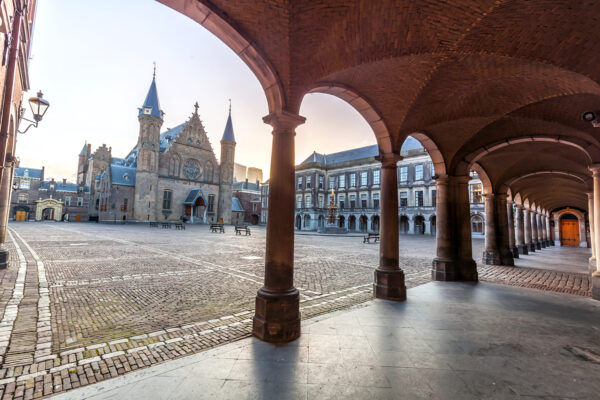
The left lost the election in the Netherlands but is winning the battle to form the next coalition government, argues conservative commentator Syp Wynia.
Labor, the far-left Socialist Party and the Greens fell to a combined 26 out of 150 seats in the election in March, down from a recent peak of 65 seats in 2006 and fewer than Prime Minister Mark Rutte’s liberal VVD (of which I am a member), which won 34 seats.
Mariëtte Hamer, a former Labor Party leader and head of the Social and Economic Council, in which employers and trade unions negotiate industrial relations, is nevertheless exploring a centrist coalition in her role as informateur that would involve both Labor and the Greens — to the rising consternation of the right.
Hamer
De Telegraaf reports that liberals worry their party is being pulled into a colorless “left-wing cloud”.
A column in the center-right EW Magazine goes so far as to accuse Hamer of “undermining parliamentary democracy” by investigating a five-party coalition with Labor and the Greens instead of a continuation of the four-party coalition with the Christian Union.
Rutte’s VVD, the social-liberal D66 and the Christian Democrats (CDA) would be needed in either combination. Labor and the Greens have said they will only go into government together. The Christian Union is reluctant to remain in power.
Hamer, a relative outsider, was asked to lead the coalition talks after earlier attempts by VVD and D66 failed.
Policy differences
There are significant policy differences between VVD and CDA on the one hand and Labor and the Greens on the other. D66 takes a middle position, which is why it’s keen on a five-party coalition.
- All parties are in favor of raising business taxes, but where the VVD calls for an additional €3.5 billion, Labor proposes a staggering €42 billion in tax increases.
- Parties agree contractors enjoy too little job security compared to full-time employees, but where the right would make it easier for companies to hire workers full-time, the left would make it more expensive to hire freelancers
- Labor opposes competition in health care. The Greens would even abolish private insurance companies and replace them with public health corporations.
- D66, Labor and the Greens want to cut greenhouse gas emissions by reducing livestocks. That’s a tough sell to VVD and CDA, who are popular among farmers.
- VVD and CDA support nuclear power, which is unacceptable to the left.
- VVD and CDA would build homes outside existing urban areas to reduce the Netherlands’ housing shortage. Left-wing parties are reluctant to sacrifice green space.
- All parties except the VVD want to abolish student debt.
Few alternatives
A continuation of the center-right coalition with the Christian Union would limit liberal ambitions on the environment, European integration and expanding euthanasia rights.
It would also have a minority in the upper chamber, although Rutte was able to legislate without a majority in the outgoing government by negotiating with senators on a case-by-case basis.
The risk for VVD and CDA is that the main opposition to a five-party coalition would come from the far right. The Freedom Party (PVV) and Forum for Democracy (FvD) could appeal to disappointed conservative voters in the next election if Labor and the Greens win significant concessions.
All mainstream parties have ruled out pacts with PVV and FvD.
The VVD did see the Forum for Democracy defectors of JA21 as potential coalition partners, but they have joined the far right in calling for a government without Rutte. (Odd, since there is no Rutte-less variant in which JA21 could possibly play a role.)
The European federalist newcomer Volt could give VVD, D66 and CDA a majority in the lower house, but it has no experience in government.
A coalition without the VVD is unlikely. It would require seven parties, ranging from the far left to the Christian right.
